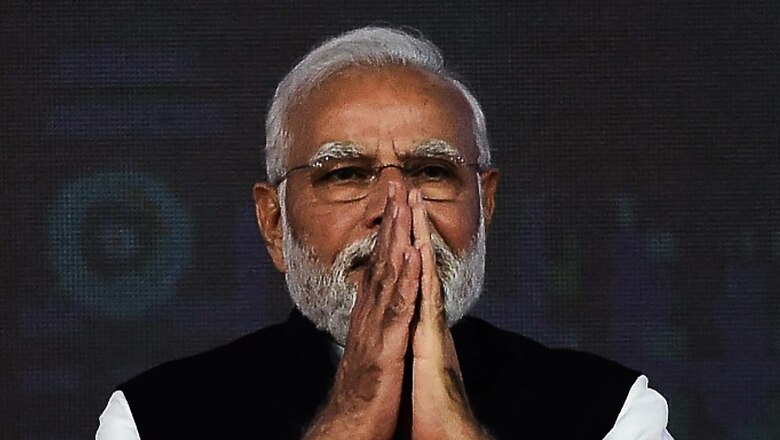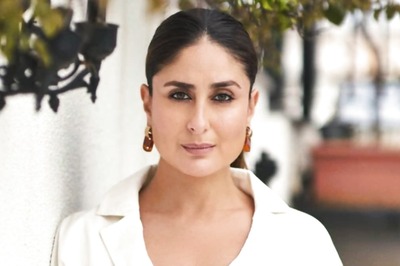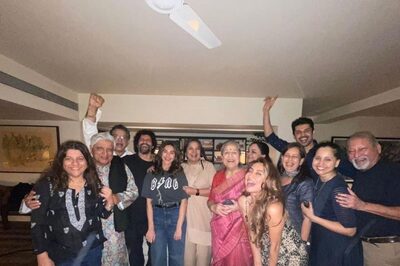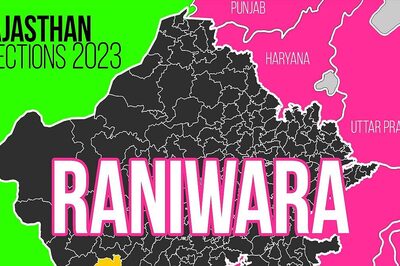
views
When the pandemic struck in 2020, all countries — large and emerging — scrambled to find the fine balance between protecting the lives of their citizens as well as their livelihoods. Many adopted the approach of keeping businesses open: however, they had to go into unplanned lockdowns when the Covid-19 caseload got too overwhelming for governments to handle. This led to ad-hoc announcements of financial relief packages and irresponsible give-aways in order to stimulate demand to keep economies afloat. We are now witnessing the consequences with looming economic recessions in those countries.
India on the other hand, as evidenced by the first clarion call given by Prime Minister Modi of jaan hai toh jahaan hai, chose to first protect lives versus livelihoods imposing a stringent lockdown until we had upgraded our healthcare infrastructure enough to handle large surges of infections. Once confident, the Prime Minister once again, on national television announced his plan to slowly open up the economy, giving yet another clarion call of jaan bhi aur jahaan bhi. Over two years since, the relevance of his words becomes evident in the top-level policy decisions taken by his government.
An important lesson that the world learned very quickly from Covid-19 is that the pandemic ceased to be just a healthcare issue after the first few months of its onset. It was more of an economic and security issue, with the power to bring some of the world’s strongest economies to a standstill. In this increasingly globalised world, disruptions in supply chains of even some of the most essential commodities made people helpless in times of
distress.
Prime Minister Narendra Modi foresaw the supply-chain issue very early on when he announced the intent of his government to strengthen Indian manufacturing in all sectors in order to become aatmanirbhar (self-sufficient). Alongside, he also stressed that while we made serious efforts in becoming self-sufficient, it was essential to upgrade our health infrastructure so that we wouldn’t have to be reliant for our basic needs in the future. This commitment shows in the Indian government’s increased healthcare budget in addition to their unrelenting efforts to upgrade our primary healthcare clinics, improving secondary and tertiary hospitals, medical education institutions, investing in diagnostic and R&D facilities as well as adopting technology to reach the last mile.
Ignored for decades, the Indian health infrastructure has been compromised and remained rather weak. The Congress, which was in power for a large part of the last seven decades since Independence mishandled the finances of the country so much so that come election time, it would always be about providing ‘roti, kapdaa, makaan and sadak’, since they wouldn’t have met the same goals promised in the previous election cycle.
Fast-forward to today, Narendra Modi’s India has proven itself as a country which has managed to save more lives than most countries in the world through the Covid-19 pandemic due to prudent decision making and decisive measures. Not only have we manufactured our own vaccines in quantities sufficient for our large population, but have also managed to administer over 200 crore vaccine doses to our people. By providing an effective elixir like our made-in-India vaccines against Covid-19, the Indian government has demonstrated its commitment in investing in healthcare. The efficacy of our vaccines as compared to others used around the world is noticeably higher speaking for the scientific rigour adopted by our top scientists during the vaccine approval process.
The fact that India has run the largest and perhaps the fastest vaccination drive on the backbone of a technology platform like COWIN has caught the attention of the world. Once mocked for our backwardness, not too long ago, the tables have turned and we are now showing the way as to how technology and modern tools can be best integrated for penetration of welfare measures. Even though the world is only now really waking up to our technological prowess and acceptability, the prime minister has been quietly working on integrating it in lives of all Indians since the time he took office in 2014 – by way of UPI interface, Jan Dhan Bank Accounts, Aarogya Setu, COWIN. Now that the people of the country have embraced it fully as evidenced by the upswing in the number of UPI transactions and vaccine appointments using COWIN, many of these have the potential to be repurposed for dissemination for larger healthcare schemes.
To reiterate his government’s focus on good health, the Prime Minister announced that free precaution doses would be provided to all those eligible to take the third Covid-19 vaccination dose for 75 days in the run up to the Independence Day on 15 August. With these developments, it may not be ambitious to expect many more upgrades in the Indian healthcare infrastructure in the days to come. Health is a key human development index — however it is only now after 75 years from Independence that we have a leader who is willing to make healthcare one of his primary focus areas.
Priyam Gandhi-Mody is an author and political communications strategist. ‘A Nation to Protect: Leading India through the COVID Crisis’ is her third and most recent book. Views expressed are personal.
Read the Latest News and Breaking News here




















Comments
0 comment